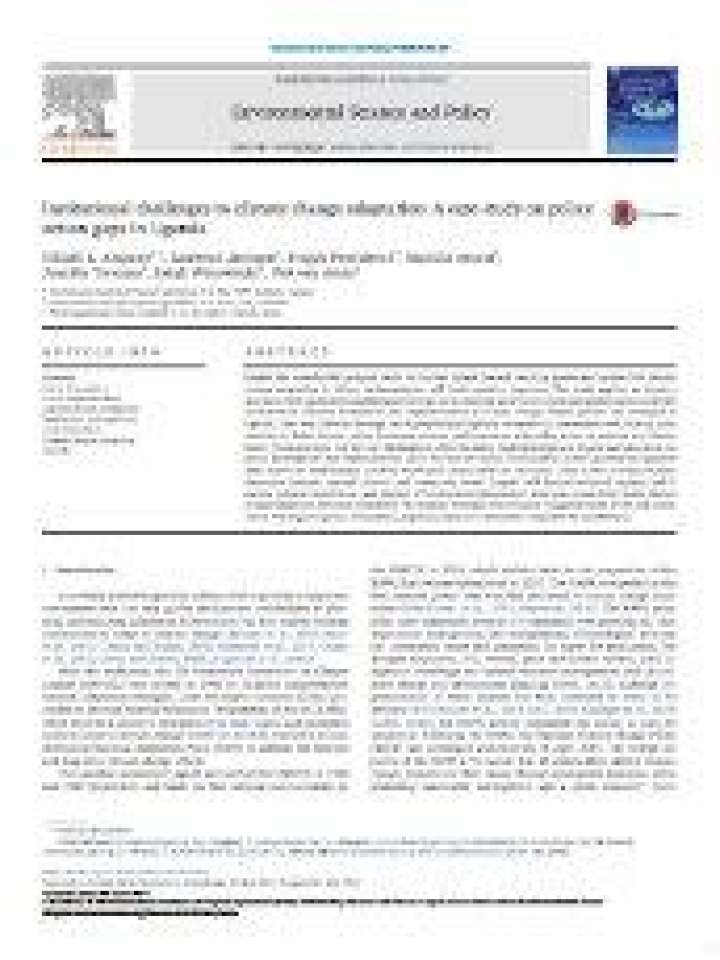Institutional challenges to climate change adaptation: a case study on policy action gaps in Uganda
This study applies an iterative process of field assessments and literature reviews across multiple governance levels and spatial scales to identify constraints to effective formulation and implementation of climate change related policies and strategies in Uganda. Data was collected through sex-segregated participatory vulnerability assessments with farming communities in Rakai district, policy document reviews, and interviews with policy actors at national and district levels.
Findings reveal that the key challenges to effective policy implementation are diverse and cut across the policy development and implementation cycle. Policies are mainly developed by central government agencies; other actors are insufficiently involved while local communities are excluded. There is also a communication disconnect between national, district, and community levels. Coupled with limited technical capacity and finances, political interference, and absence of functional implementation structures across these levels, climate change adaptation becomes constrained.
The study proposes strategies that enhance linkages between levels and actors, which will improve policy formulation, implementation and ultimately adaptation by smallholders.
Explore further
